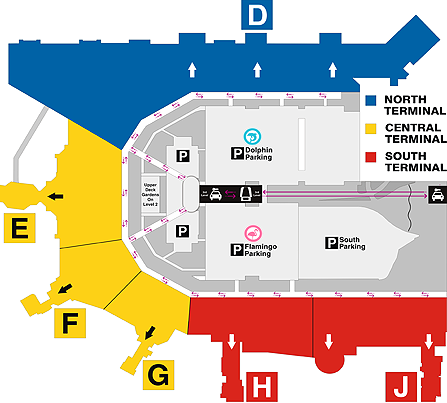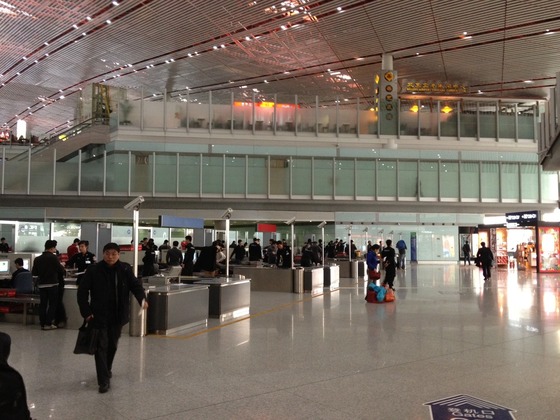Special Challenges for Business Travellers
How to survive a convention, inauguration or SXSW
EVENTS like national political conventions, major sporting events, inaugurations and the like present a special challenge for business travellers. Even the best-run cities strain under the pressure of tens or even hundreds of thousands of extra visitors. With an entire metropolis in chaos, it’s especially important to find the right place to stay and have a good way to get around. Otherwise, you won’t get any work done. Here are some tips:
- Penny wise, pound foolish: there’s no point saving $50 a night on a hotel outside the city centre if you’re going to be spending that much taking taxis to and from the heart of the action. There’s always a temptation to scrimp on lodging, but where you stay often determines how successful (or stressful) your trip turns out. Remember the estate agent’s motto: location, location, location.
- Make multiple plans, and look for new lodging the day the event starts: have a back-up reservation that you can cancel closer to the date of the event. Organisers of major conferences like the Democratic and Republican conventions reserve huge room blocks months in advance; often there will be nothing available downtown unless you go through official channels (ie, have connections). But if you have a back-up reservation, you can afford to wait until the first day of the event, when room blocks are released and you can often find rooms at even the best hotels. When in doubt, telephone; hotels might have rooms available that aren’t listed on sites like Orbitz and Kayak. Whatever you do, don’t pay $899 a night, like one Charlotte hotel was asking the week before the Democrats’ gathering.
- Look into hotel alternatives: some of the best lodging for big conferences like South-by-Southwest (SXSW) can be found on sites like Craigslist and AirBnB. Sometimes you can even find a bargain—and get far closer to the action than you might if you go down the hotel route. The airBnB rental I got for Charlotte came complete with gym access and a stocked beer fridge. It doesn’t get much better than that.
- Book your flights as early as possible: big events are stressful enough without worrying about connecting through Chicago or Detroit. The good thing about major conferences is that you usually find out the dates at least a year in advance; that gives you plenty of time to find and book a direct flight. Don’t trust flight-price predictors like Bing for big events unless they’re in the same city every year; the algorithms that make the price predictions are unlikely to be able to predict the dramatically increased demand as the big event draws near. Don’t risk losing out on a direct flight for a slim chance at a $40 or $50 fare-price drop: buy early. You’ll be relaxing all the way there while everyone else is scrambling to make their connections.
- Check walkability and don’t count on cabs: as I mentioned yesterday, walkability score is a good proxy for whether you’ll want a rental car in a city you’ve never visited before. Remember: it’s the neighborhood walkability score, not the entire city score, that you should consider. You don’t want one in Manhattan, Washington DC, or San Francisco; you definitely need one in Houston or Tampa. If you get a car, reserve early and scout out parking options in advance, either online or by calling. If you’re going without a car, don’t count on being able to take taxis; everyone else has the same idea. Try to find a location where you can walk or use public transport to get where you need to go; if you must rely on taxis, try to call a driver in advance and offer to pay double if he or she will pick you up as needed. You don’t want to be stuck looking for a ride at 2am. If you or your company has the resources, consider booking a car and driver for the duration of the event. Though if you’re paying for that, you might as well spend the money on a hotel closer to the action.
Source the Economist.
Sep 4th 2012, 10:30 by N.B. | CHARLOTTE


 Four years in the making, the sleek suites feature elegant leather seats that each conveniently have their own aisle access, beds that are longer than any other airline’s, frosted Perspex passenger divides for light and privacy, and easy access storage solutions. Meanwhile a gleaming bar, which is separate from the cabin, provides a space to mingle with other passengers.
Four years in the making, the sleek suites feature elegant leather seats that each conveniently have their own aisle access, beds that are longer than any other airline’s, frosted Perspex passenger divides for light and privacy, and easy access storage solutions. Meanwhile a gleaming bar, which is separate from the cabin, provides a space to mingle with other passengers.
 The re-designed cabin will also soon be available on the Mumbai service, from October this year. Meanwhile, the Virigin team is currently working on resizing and tweaking the Upper Class Suite to fit their 787 Dreamliners, which is due for delivery in 2015.
The re-designed cabin will also soon be available on the Mumbai service, from October this year. Meanwhile, the Virigin team is currently working on resizing and tweaking the Upper Class Suite to fit their 787 Dreamliners, which is due for delivery in 2015.










 The
The 


